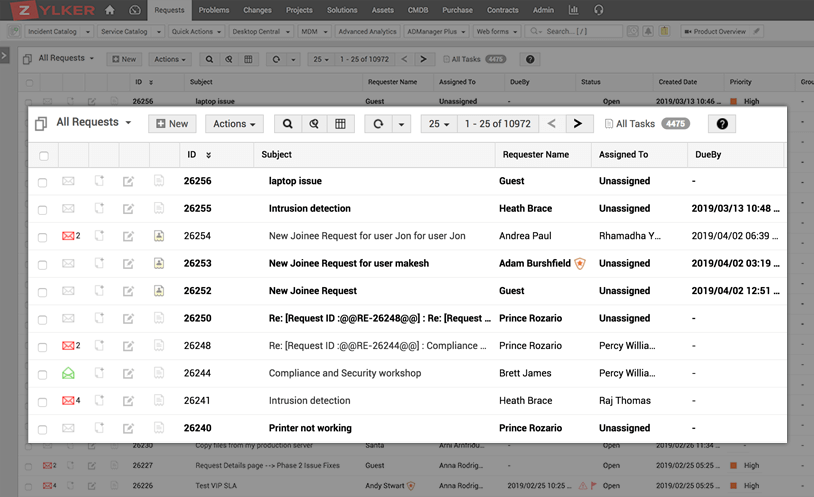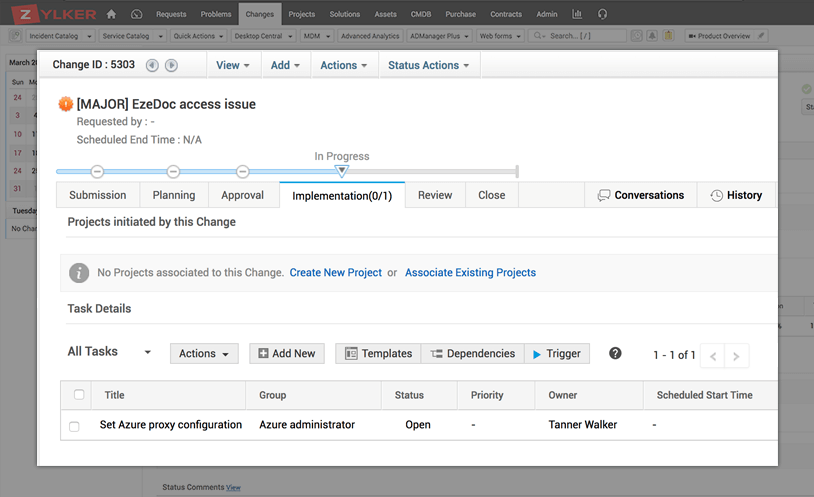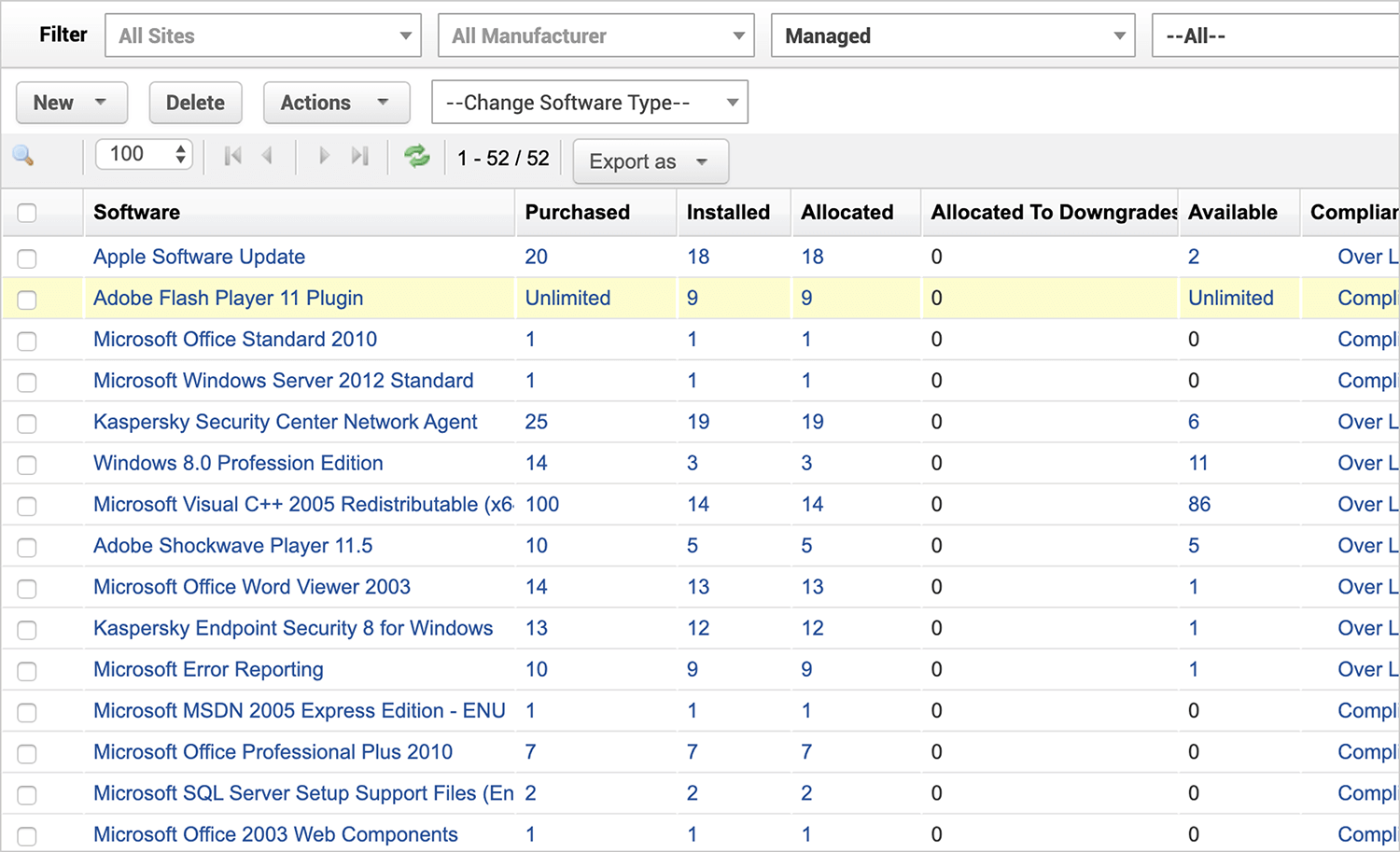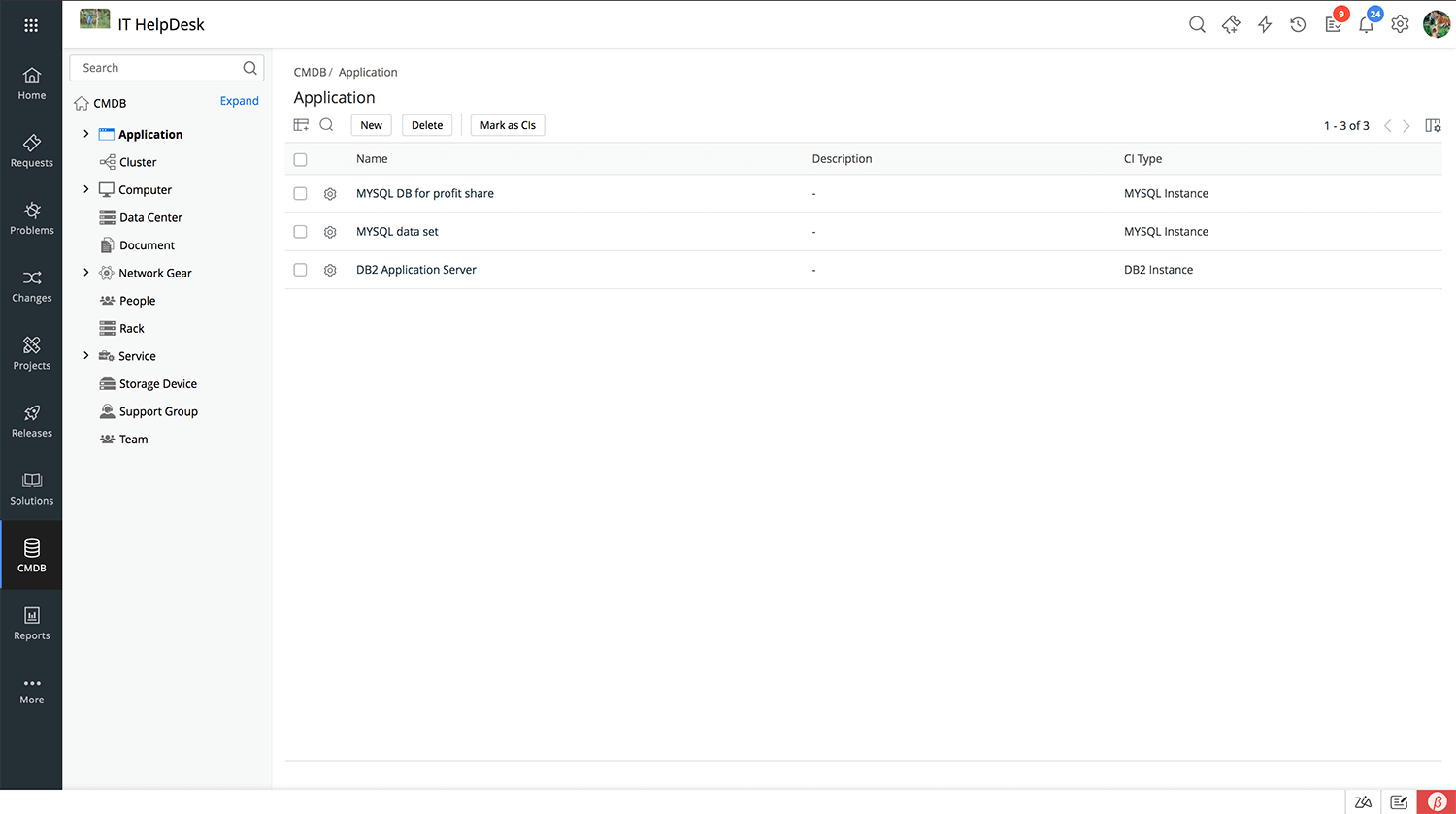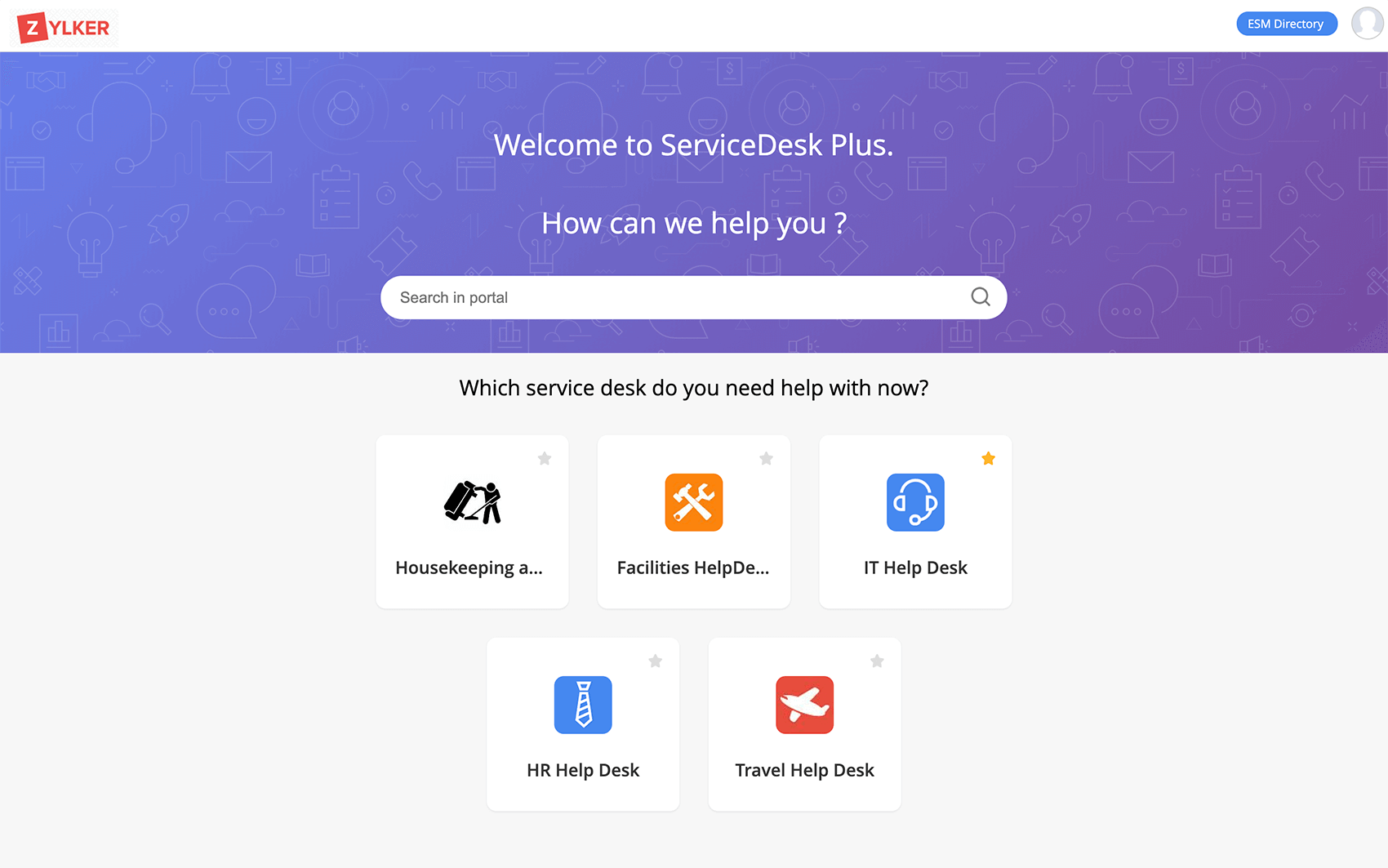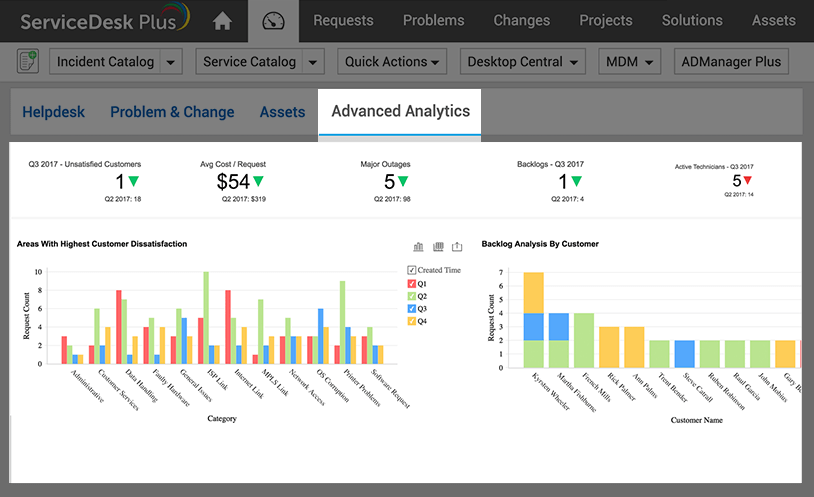Transform your IT service desk operations with ServiceDesk Plus.
+ years
of experience
+
service desks
countries
Essential features in ServiceDesk Plus for effective IT problem management
Recording an IT problem
Easily create a new problem or convert IT incidents to one when the issue calls for it with the seamless interaction between the incident and problem modules.
Problem life cycle
Build and record every aspect of a problem, and automate workflows with the problem life cycle builder available in the cloud version of ServiceDesk Plus. This plays a key role in building efficient problem management processes that minimize downtime and lead to faster resolution times.
Associating related incidents with a problem
Associating all IT incidents with their underlying IT problem enables better root cause analysis (RCA) and allows technicians to close tickets in one shot on problem resolution. This saves time and effort and reduces the impact of problems on IT infrastructure and service delivery.
Associating changes with a problem
Sometimes an IT problem calls for an IT change to be its resolution. Associating the related problem with the change enables technicians and stakeholders to keep track of the issue in one place and allows for easier communication.
Converting work-arounds and solutions to knowledge base articles
When an IT problem is resolved, submit the resolution and record it in the knowledge base in one go. This allows easy reference in the future, thereby minimizing the impact of problems.
Documenting known errors
IT problems can be quickly marked as known errors from within the logged problem for future reference, helping to minimize the effects of subsequent problems and decrease resolution times.
Announcements and notifications
On identifying an IT problem, an announcement to stakeholders will help prevent any further IT ticket creation instigated by the identified error, decreasing the IT team’s workload. Announcements can be triggered from the service desk and displayed to all involved parties in the self-service portal. In ServiceDesk Plus, it's easy to select the audience for an announcement and broadcast it. Similarly, stakeholders can also be notified through emails and SMS.
Awards & Recognitions
Best practices for next-level IT problem management
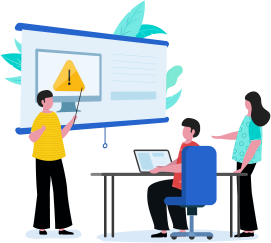
Build detailed problem templates
Get to the bottom of the issue fast by recording accurate information in the template during problem logging. Determine the impact, urgency, and priority of the problem right when it’s submitted.
Categorize and prioritize
Assigning primary and secondary categories to problems enables automatic technician assignment as well as prioritization. The priority of a problem is determined by how it impacts the business and users and is therefore key to resolving issues effectively with minimal risk.
Perform effective RCA
The root cause is the underlying source of an IT problem that generates a flurry of incidents. RCA helps identify the root cause, analyze its impact and urgency, and prioritize the problem, thereby minimizing risk. If a problem requires a longer investigation before the IT team can arrive at a long-term resolution, it's best to administer a work-around and cut down the problem’s effects.
Record known errors and derive future resolutions easily
If a problem is identified as a known error, it's best to mark it while resolving the issue. This will help technicians refer to such resolutions and possibly draw up work-arounds and resolutions to new problems quickly.
Review the problem
A problem review involves the management team evaluating the problem documentation in every step of the process and discussing what worked, lessons learned, and the challenges faced. This helps prevent future problems and incidents.
Carry out error control
Periodically reassessing the status of unresolved known errors and the true effectiveness of documented work-arounds, and improving work-arounds based on their application on new problems, are all considered error control activities. These tasks are crucial to maintaining an effective knowledge base, improvising when needed, and making effective resolutions for future problems.
Other ITSM processes available in ServiceDesk Plus
Trusted by 100,000+ IT service desk teams across the globe
© Zoho Corp. All rights reserved.


